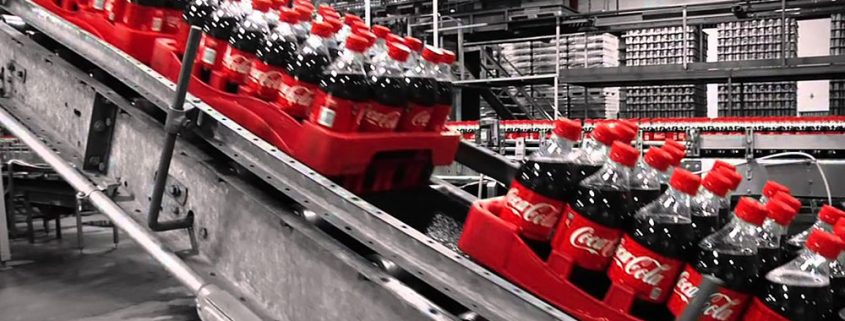Case Study: Coca-Cola Bottler, Ireland
State-of-the-art Coca-Cola plant uses DataHub scripts to integrate alarm data and reports.
One of the largest soft drink manufacturing plants in the world, Coca-Cola’s Ballina Beverages facility, recently installed DataHub® software from Cogent Real-Time Systems (Skkynet’s subsidiary), to log alarm data and create end-of-shift reports. The 62,000 square meter plant, located in Ballina, Ireland, uses the most up-to-date manufacturing automation systems available, and management is constantly looking for ways to improve them.
Some of the equipment used at Ballina Beverages is designed and manufactured by Odenberg Engineering. Odenberg, in turn, relies on their subsidiary, Tricon Automation to handle the process control of the machinery.
In a recent upgrade to the system, the Odenberg/Tricon team chose DataHub software to construct custom log files to track and archive their alarms. They wanted to combine the live data from each triggered alarm with a text description of the alarm, and then log the results to a file. The alarms were being generated by an Allen-Bradley system from Rockwell Automation Inc., and the 1500 alarm descriptions were stored in an Excel spreadsheet. Each row of the final log would have to combine the time, date, and code of a triggered alarm with the corresponding description of that alarm.
After considering several different scenarios, the most effective approach was to connect their DataHub instance to Rockwell Automation’s RSLinx using its OPC server, and then to read in the alarm condition strings from a text file (instead of from the spreadsheet), using a DataHub script. The same script writes the data to the log file. This works so well that they decided to use another script to create end-of-shift reports.
“We got the basic system up and running in a few hours,” said Gus Phipps, team member from Odenberg, “which was good, because we were working under a tight deadline. The Cogent support team helped us out with the DataHub scripting, but we were able to do most of the work ourselves. It went surprisingly quickly.”
“Using the DataHub scripting language let us customize it to exactly meet our needs,” said George Black, Tricon’s project manager. “It is very flexible, and yet completely robust. It is months now since the project was completed, and the DataHub software continues working away merrily every day, just doing its job. We plan to use it again in other projects very soon.”






